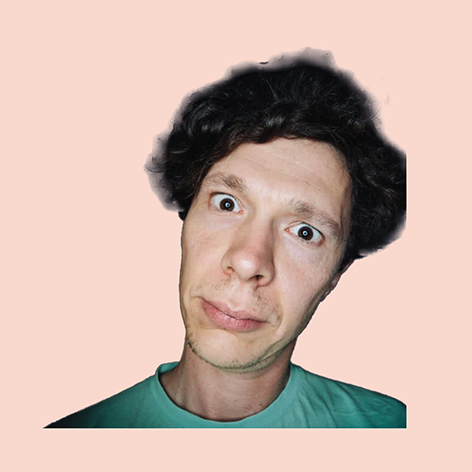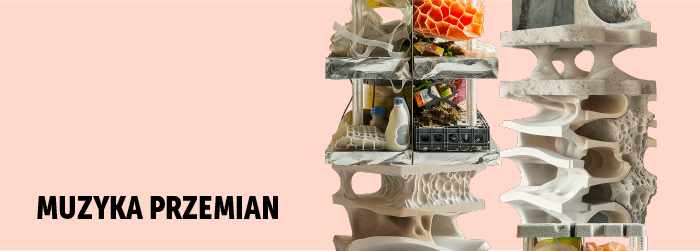The soundscape of our lives serves not only entertainment purposes but requires us to be increasingly responsible, attentive and selective. Before the industry emerged on a massive scale, sounds artificially created by humans were relatively rare. These sounds were usually assigned specific meanings, giving them the status of signals. The Industrial Revolution flooded us with waves of meaningless sounds, creating a ‘second nature’ of things in the background. The development of recording techniques also brought an ordered form, i.e. music, out of the realm of non-invasive experience. The entertainment industry was the first to use sounds to imitate reality. As early as the end of the 19th century, the theatre used the recorded cry of a child on a vinyl record as a special effect. Nearly a hundred years later, sound design was elevated to the level of art. This is said to have been due to Francis Ford Coppola, who was the first to use the term ‘sound design’ to refer to his collaborator editing sound for ‘Apocalypse Now’. Today, we produce utilitarian sounds and engage in sound recycling on a massive scale. This has not been without impact on art and compositional techniques.
In the mid-20th century, Eugeniusz Rudnik, a technical engineer employed at Polish Radio, began spontaneous experiments and sound games using magnetic tape. The work on special sound effects at the Polish Radio Experimental Studio contributed to the development of new compositional techniques based on the collage of cut and spliced magnetic tape, as well as sounds created using the electronic generators available at the time. Cut tape became an almost physical, tangible substitute for sound. Rudnik and other composers associated with PRES were ahead of their time, thus anticipating the advent of sampling technology, which later embodied the idea of musical recycling. The invention of the sampler quickly established new musical forms and norms – experimental industrial, mainstream synth-pop, and hip-hop, which became an expression of modern urban folk music.
In electronic music, sound has become the object of constant processing, with the goal of searching for new forms and timbres. The wave of creative, ‘intelligent’ electronic music from the 1990s earned the name ‘new sounds’ (nowe brzmienia) in Polish. It is from this wave that Bartek Weber's first electronic project, Baaba, originated. Initially, it was a home-based solo project created using a desktop PC and software available a quarter-century ago. It was likely technical limitations (such as the inability to travel and perform with a PC) that led Baaba to evolve into a full-fledged and uniquely original band on the Polish scene. Its originality was primarily defined by the compositional process and Bartek’s creative stance as a ‘declared sampler’. DJ culture arose from the need to redistribute sonic goods and can be seen as a form of cultural recycling. Gummi, a representative of the current Warsaw DJ scene, started out in a traditional way – by collecting and finding rare vinyl records. However, when standing behind the decks, she decided to use digital files for purely practical reasons. The case of Julek Płoski, one of the most talented young electronic music creators, clearly shows that virtually anything can be a source material for producing contemporary music – especially those that we least expect to inspire us. These can include the aisles of a popular supermarket, stock music for commercials, game soundtracks, but also classic minimalism, or epically pompous film music. Particularly interesting in this context are short cultural-pop forms, where musical buildup happens extremely quickly, such as commercial jingles, trailers, and promotional spots.
If we treat sound as a material, it quickly becomes clear that we should also consider the principles of sustainable development in this realm. How many times have you been in a place where everything was perfect except for the music? How many times have you gotten into a taxi and immediately regretted it? Wasn't the former lack of intrusiveness part of the bygone charm of radio stations? I am writing this while sitting in a nearly ideal place, were it not for the overwhelming noise of passing cars and the sharp sounds of ambulance sirens. So, I would bet that we will materialize our future by basing it on silence.
Michał Hajduk
Music events curator of Przemiany Festival
 Bartosz Weber - a multi-instrumentalist playing guitar, keyboards, and occasionally percussion. He loves samplers. He is known as the leader of the band Baaba, but also for his performances in all incarnations of Mitch & Mitch and his participation in the bands Fotojondro, Elektrolot, Slalom, MIR, DOM, and the Warsaw Entertainment Orchestra.
Bartosz Weber - a multi-instrumentalist playing guitar, keyboards, and occasionally percussion. He loves samplers. He is known as the leader of the band Baaba, but also for his performances in all incarnations of Mitch & Mitch and his participation in the bands Fotojondro, Elektrolot, Slalom, MIR, DOM, and the Warsaw Entertainment Orchestra. 

 gummi - a member of the extremely vibrant and integrated young DJ scene from Warsaw. She is a co-organiser of the GUNGE series. You can most often see and hear her at K Bar Powiśle, a venue that is becoming an important centre for both the local and national music scene, as well as a home for DJs from war-affected areas.
gummi - a member of the extremely vibrant and integrated young DJ scene from Warsaw. She is a co-organiser of the GUNGE series. You can most often see and hear her at K Bar Powiśle, a venue that is becoming an important centre for both the local and national music scene, as well as a home for DJs from war-affected areas.  Julek Płoski -
Julek Płoski -